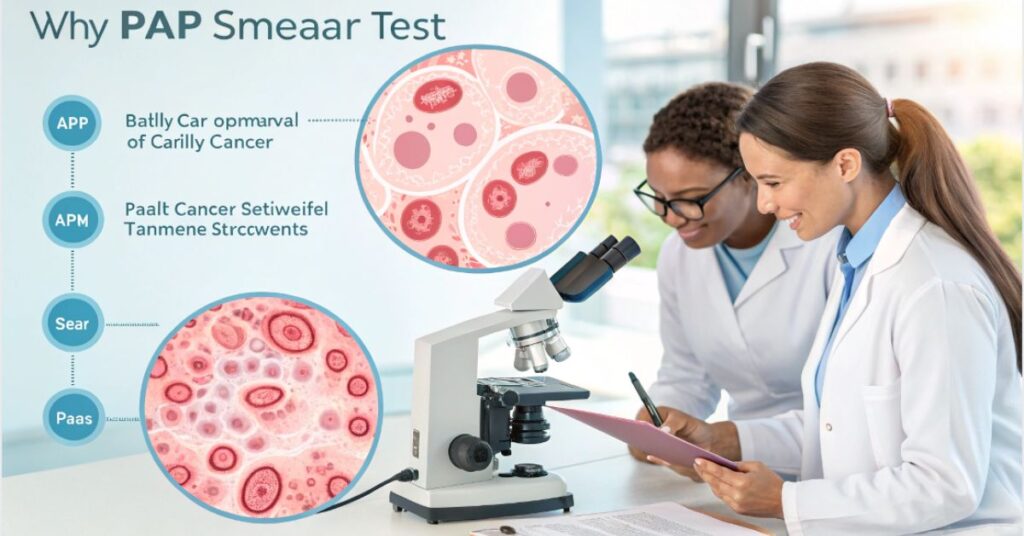Women’s health screenings play a vital role in preventing serious diseases, and one of the most essential among them is the Pap smear test. This simple test, usually done during a pelvic exam, is designed to detect abnormal changes in the cervix that could lead to cervical cancer. Early detection through Pap smears has saved countless lives by identifying precancerous cells before they turn into cancer. Despite its importance, many women delay or avoid this test due to fear, discomfort, or lack of awareness. Understanding why Pap smears matter can help encourage timely and regular screening for better health outcomes.
Detects Precancerous and Cancerous Cells Early
The main purpose of a Pap smear is to find changes in cervical cells early—before they become cancerous. Detecting abnormal cells at an early stage allows doctors to monitor or remove them before they develop into cervical cancer. This early intervention is key to preventing serious health issues later.
Helps Prevent Cervical Cancer
Routine Pap smears are one of the most effective tools for preventing cervical cancer. When done regularly, these tests significantly reduce the risk of developing cancer by identifying and treating abnormal cells early. Countries with widespread Pap smear testing have seen a major drop in cervical cancer cases and deaths.
Monitors Human Papillomavirus (HPV) Impact
Human papillomavirus (HPV) is a major cause of cervical cancer. Pap smears often go hand-in-hand with HPV testing to check for the virus. Monitoring HPV and its effects on cervical cells helps doctors assess a woman’s risk and take preventive steps when needed.
Essential for Women Over 21
Healthcare guidelines recommend that women start getting Pap smears at age 21, even if they’re not sexually active. Women aged 21 to 65 should continue regular testing every 3 to 5 years, depending on age and previous results. Following this schedule is crucial for long-term health.
Tracks Reproductive Health Changes
Pap smears provide insights into overall reproductive health. They help identify infections, inflammation, and changes in the cervix that may be unrelated to cancer but still require treatment. Regular screenings help doctors track these changes over time.
Painless and Quick Procedure
The Pap smear test is quick and usually takes just a few minutes. While it may be slightly uncomfortable, it isn’t painful for most women. The short time it takes is well worth the long-term health benefits it provides.
Important After Childbirth or Menopause
Even after childbirth or menopause, women should continue Pap smear testing. Hormonal changes can still lead to cervical abnormalities. Ongoing screening ensures that any changes are detected, regardless of age or reproductive history.
Detects Infections and STDs
While not its primary purpose, a Pap smear can sometimes detect signs of infections, including yeast infections, bacterial vaginosis, or sexually transmitted diseases (STDs). Early identification of these issues can lead to prompt treatment.
Supports Peace of Mind
Regular Pap smears offer reassurance. Knowing that your cervical health is being monitored helps reduce anxiety and empowers women to take charge of their health. It’s a proactive step that builds long-term confidence.
Saves Lives Through Early Action
Cervical cancer is one of the most preventable and treatable types of cancer—if caught early. Pap smears save lives by enabling doctors to act before problems become serious. Delaying or skipping tests puts women at greater risk of late-stage diagnosis.
Conclusion
The Pap smear is a vital part of women’s health care. It helps detect abnormal cervical cells early, prevents cervical cancer, and supports overall reproductive well-being. Regular screening is quick, simple, and lifesaving. Every woman deserves access to this essential test—and the peace of mind that comes with knowing she’s taking care of her health. If you’re due for a Pap smear, don’t wait—schedule your appointment today and protect your future.

